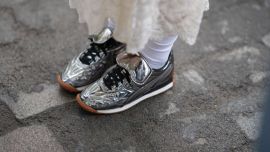The People’s Bank of China made US$6.5 billion available to Argentina from a currency swap line the countries share, President Alberto Fernández announced Wednesday after meeting with President Xi Jinping in Beijing.
The move comes right before Argentina’s presidential election Sunday as political uncertainty roils markets and the peso’s parallel exchange rate sells off.
Fernández said he originally requested US$5 billion, and Xi granted an additional US$1.5 billion.
“It’ll allow us to intervene” in currency markets, Fernández told an Argentine radio station. The swap news “is a big relief for Argentina.”
In total, Argentina has an US$18-billion swap line with China. It’s tapped it at times this year to pay debts to the International Monetary Fund and finance imports as the South American country runs low on dollars, leaving the central bank with record net negative reserves.
An Economy Ministry spokesman said the activated part of the swap would be made available starting Wednesday.
“As I told Xi Jinping, in Argentina we say that good friends appear in bad moments and every time we went through a hard time, the government of Xi Jinping was very generous and attentive to our needs,” Fernández said.
Argentina’s Central Bank has run low on dollars after a record drought cost the country US$20 billion of commodity exports. The peso has lost about half its value on the parallel exchange rate since a primary vote in August, when libertarian outsider Javier Milei took first place in a tight three-way race, reaching a record high of 1,040 pesos per US dollar last week.
China’s financial aid to the incumbent Peronist coalition comes after Milei pledged in August to cut off diplomatic ties if he were elected, calling the Chinese government “an assassin” that doesn’t let its people live freely.
Economy Minister Sergio Massa, running as the incumbent candidate to replace Fernandez, who is not seeking re-election, posted Wednesday that the freed up resources bring the total available amount in the swap line to US$11.5 billion. Massa faces a tough road to victory as inflation exceeds 138 percent a year and the country barrels toward another recession. Also in the running is Patricia Bullrich, who represents the main pro-business Juntos por el Cambio coalition.
The next government will have to contend with a failed US$44-billion IMF programme, the lender’s largest. Fernández’s government has tapped the China swap line twice this year to make IMF payments and avoid going into arrears with the Washington-based lender.
Fernández criticised Milei’s stance on China and boasted about how he’s deepened ties with Beijing during his government.
“There’s a crazy guy who says he won’t accord or negotiate with X country when in reality those countries have helped Argentina a lot,” Fernández said in response to a question about his party’s contenders.
related news
by Manuela Tobias, Bloomberg
























Comments